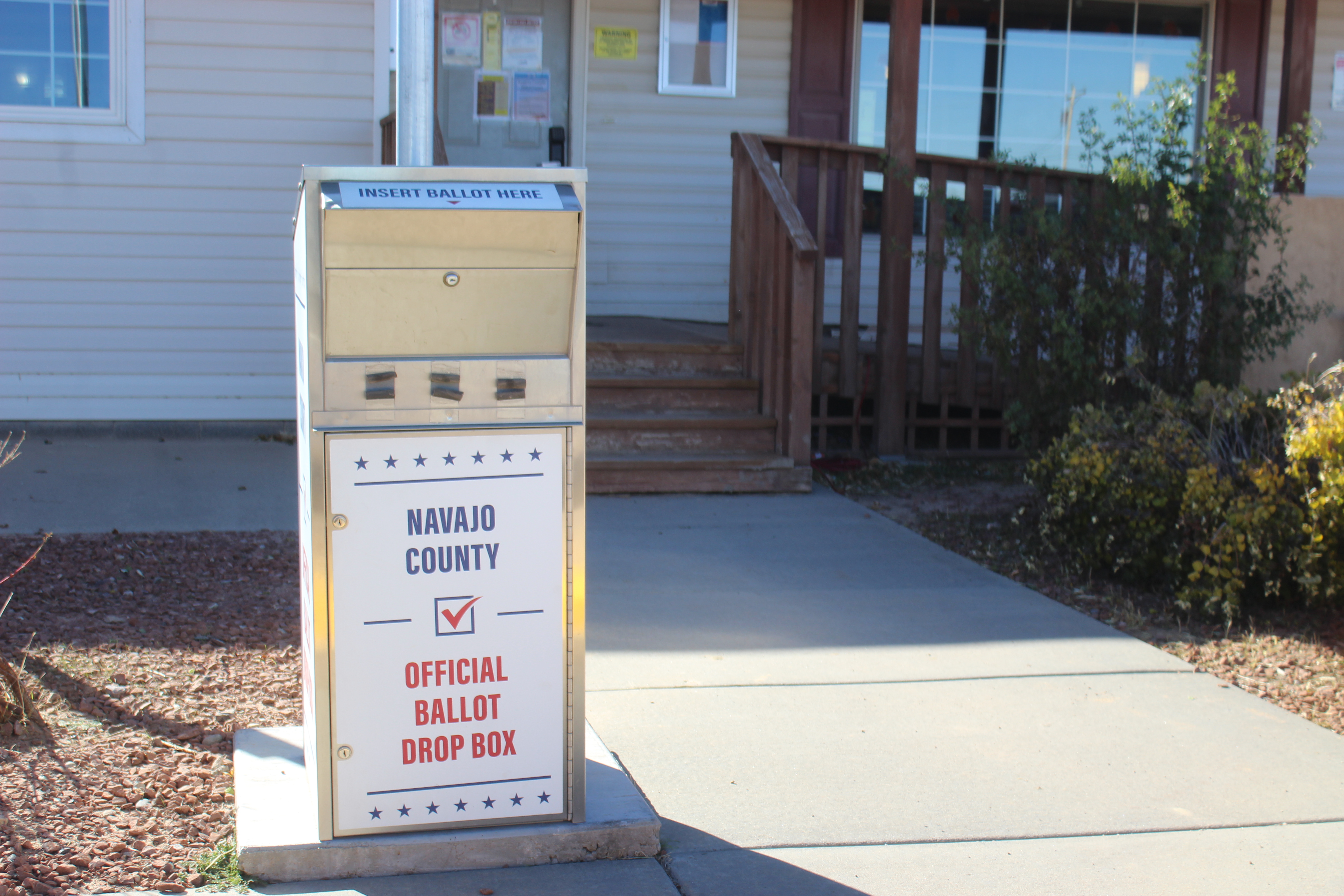
- Details
- By Neely Bardwell
Native Vote 2024.Following the results of the presidential election, IllumiNative, Native American Rights Fund (NARF), Native Organizers Alliance (NOA), and the National Congress of American Indians (NCAI) released a statement Tuesday, November 19, addressing the misleading data surrounding Native voter turnout. This comes after misleading exit polls shared by NBC.
The 2024 presidential election exit polls conducted by the National Election Pool (NEP) and Edison Research showed that Native people disproportionately voted Republican. This sparked concern due to significant limitations in the methodology and scope of the poll. The results showed Native American voters supporting Donald Trump 65% to Kamala Harris’s 35%.
Native News Online published its post-election poll last Friday, that conducted a more thorough poll showed Trump narrowly defeating Harris 51% to 47% among Native Americans. However, the 51% was rounded up, making it far from a clear mandate for the incoming administration to pursue its agenda in Indian Country.
Although the Native community is not a monolith, preliminary data shared by NARF shows that often as the state based population of Native Americans increases so does the support for Democratic candidates. For example, in counties with majority Native populations, support for the Democratic candidate was larger than support for the Republican candidate in states such as Montana (67% to 28%), North Dakota (72% to 27%), South Dakota (63% to 33%), and Wisconsin (87% to 12%).
Edison Research and NEP’s exit poll data of 229 Native peoples is not reflective of the diversity of Indian Country due to its limited scope. This year, the NEP/Edison Research exit polls were conducted at only 279 election-day polling places and 27 early in-person voting locations. No exit polls were conducted at any polling locations on tribal land.
“It is important to gather and share accurate data about Native voter preferences, but it is equally important that we acknowledge the systemic obstacles that are keeping Native voices from being heard at all. At the Native American Rights Fund, we continue to document and battle the lack of equal opportunities to register and vote in Native communities: long distances to polling locations, inadequate housing, and no home mail delivery are still preventing Native communities from equitable voting opportunities,” Jacqueline De León (Isleta Pueblo), an attorney at the Native American Rights Fund, said. “How many voters were disenfranchised this election season? How many votes were left on the table? So, yes, let's make sure that we report out accurate numbers on the influence and power of Native voters, but let’s also make sure that we continue to work toward free and fair elections that allow Native voters to have a voice.”
According to NARF, preliminary voter turnout in the majority-Native counties suggests a drop from 53.3% in 2020 to 48.8% in 2024, displaying a decline of nearly 10,000 votes that is reflective of the low voter turnout seen nationwide.
“While national data points to turnout challenges and a lack of turnout in general, it’s essential to recognize the generational efforts within Indian Country that have empowered and engaged our communities in American Democracy,” said Michael Johnson (Three Affiliated Tribes of North Dakota), president of IllumiNative. “Our Natives Vote campaign was part of a larger community movement that has mobilized Native people and communities nationwide. Our Nations, communities and allies remain resilient and determined, and we will continue to strive for equitable representation in all facets of American life.”
The Natives Vote campaign, led by IllumiNative and NOA, bolstered turnout by reaching Native voters nationwide. Native Organizers Alliance partnered with Tribes and Native community groups in 12 states and worked with more than 160 Native community organizers on the ground.
“Despite facing challenges such as limited polling locations, language, distances, and restrictive voter ID laws, Native communities were mobilized to exercise their constitutional right to vote. And now, we’re in a better position to activate our ground game to protect our sovereignty and sacred places and drive turnout in the next election," Judith LeBlanc (Caddo), executive director of Native Organizers Alliance said.
“Accurate representation is vital to our democracy. The National Congress of American Indians calls for an equitable and comprehensive approach to exit polling that truly reflects Native voices across Indian Country,” said Mark Macarro (Pechanga Band of Indians), president of National Congress of American Indians. “Our communities, especially in rural and tribal areas, demand to be reported on with diligence and accuracy. Native voter influence must not be distorted and diminished. NCAI stands committed to ensuring that all Native votes contribute fully to the national discourse and to the advocacy of Tribal sovereignty.”
More Stories Like This
Native News Weekly (August 25, 2024): D.C. BriefsUS Presidents in Their Own Words Concerning American Indians
Native News Weekly (December 21, 2025): D.C. Briefs
Native America Celebrates the Winter Solstice
Tlingit & Haida Launch New Foundation to Support Education, Wellness
Help us defend tribal sovereignty.
At Native News Online, our mission is rooted in telling the stories that strengthen sovereignty and uplift Indigenous voices — not just at year’s end, but every single day.
Because of your generosity last year, we were able to keep our reporters on the ground in tribal communities, at national gatherings and in the halls of Congress — covering the issues that matter most to Indian Country: sovereignty, culture, education, health and economic opportunity.
That support sustained us through a tough year in 2025. Now, as we look to the year ahead, we need your help right now to ensure warrior journalism remains strong — reporting that defends tribal sovereignty, amplifies Native truth, and holds power accountable.
 The stakes couldn't be higher. Your support keeps Native voices heard, Native stories told and Native sovereignty defended.
The stakes couldn't be higher. Your support keeps Native voices heard, Native stories told and Native sovereignty defended.
Stand with Warrior Journalism today.
Levi Rickert (Potawatomi), Editor & Publisher


